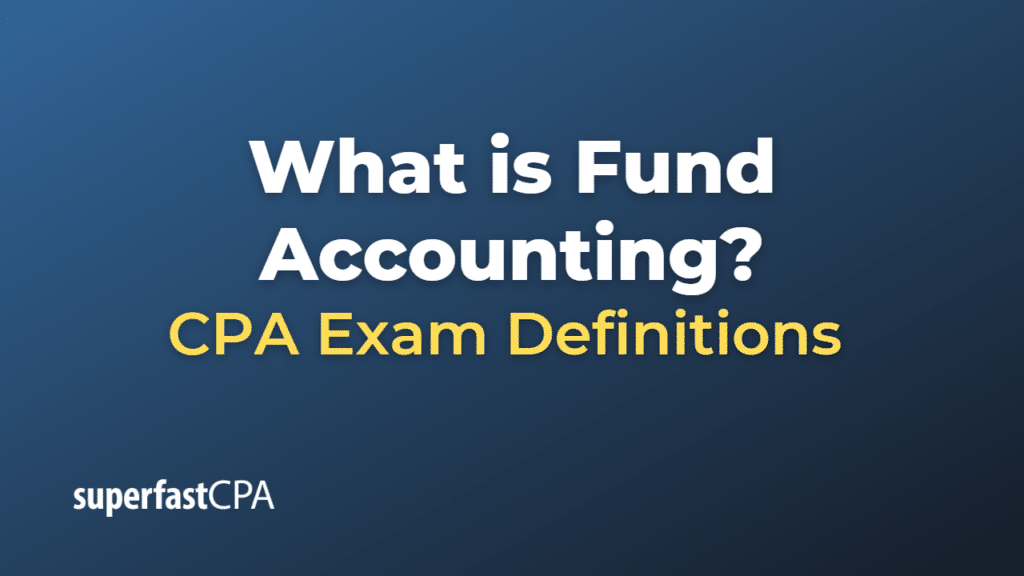Fund Accounting
Fund accounting is a system of accounting used primarily by non-profit organizations, government agencies, and universities. These organizations are often funded by donations, grants, or taxpayer money and are typically organized around the principle of accountability, rather than profitability.
In fund accounting, resources are categorized into separate funds based on their intended purpose, as specified by donors, grant guidelines, or governing regulations. Each fund is considered a self-balancing entity, with its own assets, liabilities, revenues, and expenses.
Here are the main types of funds typically used in fund accounting:
- General Funds: These are unrestricted funds that can be used for any purpose within the organization’s mandate.
- Special Revenue Funds: These are funds that must be used for a specific purpose, usually specified by a donor or grant provider.
- Capital Projects Funds: These are funds dedicated to significant capital expenditures, like construction or acquisition of fixed assets.
- Permanent Funds: These are funds where the principal must be maintained permanently—only the income generated from investing the principal can be used, often for a specified purpose.
- Debt Service Funds: These are funds used to account for the accumulation of resources for, and the payment of, general long-term debt principal and interest.
The goal of fund accounting is to demonstrate stewardship and accountability, ensuring that funds are being used in accordance with the donor’s, grantor’s, or regulator’s stipulations. This system allows organizations to segregate and monitor resources to prevent them from being diverted from their intended use.
While it’s a useful system for accountability, fund accounting can be more complex than traditional business accounting because of the need to track and report on multiple separate funds, each with its own specific use restrictions and reporting requirements.
Example of Fund Accounting
Let’s consider a hypothetical example involving a non-profit organization.
Imagine a non-profit organization named “Community Aid” that has three primary sources of funding:
- General Donations: These are donations from individuals and corporations that come with no stipulations on their use. These donations go into the organization’s “General Fund,” which is used to cover operating expenses like salaries, rent, utilities, and office supplies.
- Special Grant for Educational Programs: Community Aid receives a grant from a philanthropic foundation specifically to fund educational programs for underprivileged children in the community. This grant money goes into a “Special Revenue Fund” and is used to pay for tutors, educational materials, and other direct costs of the educational programs.
- Endowment for Hunger Relief: A wealthy benefactor leaves an endowment in their will to Community Aid specifically for hunger relief efforts. The principal of this endowment is invested, and the investment income goes into a “Permanent Fund.” The income from this fund is used to purchase food for the organization’s food bank and to provide meals for those in need.
Community Aid uses fund accounting to keep track of these three sources of funding separately, ensuring that each is used for its intended purpose. It maintains separate ledgers for each fund, tracking the assets, liabilities, revenues, and expenses related to each.
For example, if a donation comes in from the philanthropic foundation for the educational program, the revenue is recorded in the Special Revenue Fund. When educational materials are purchased, the expense is also recorded in the Special Revenue Fund.
This system allows Community Aid to demonstrate to its donors, grant providers, and regulatory authorities that it is using its funds responsibly and in accordance with each fund’s stipulations. It also helps the organization plan and budget effectively by understanding how much money it has available for each of its initiatives.













